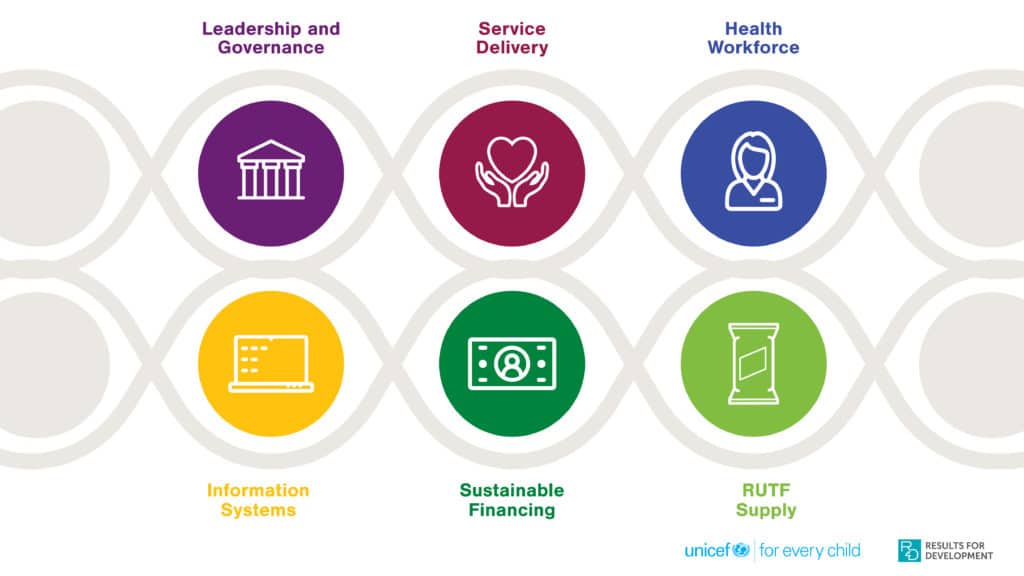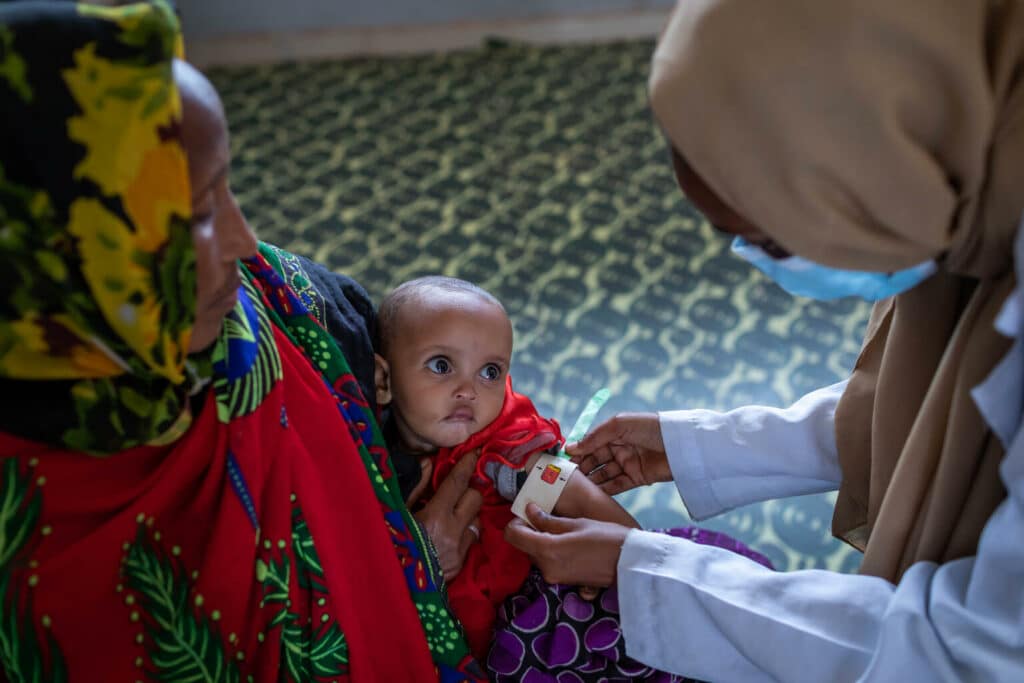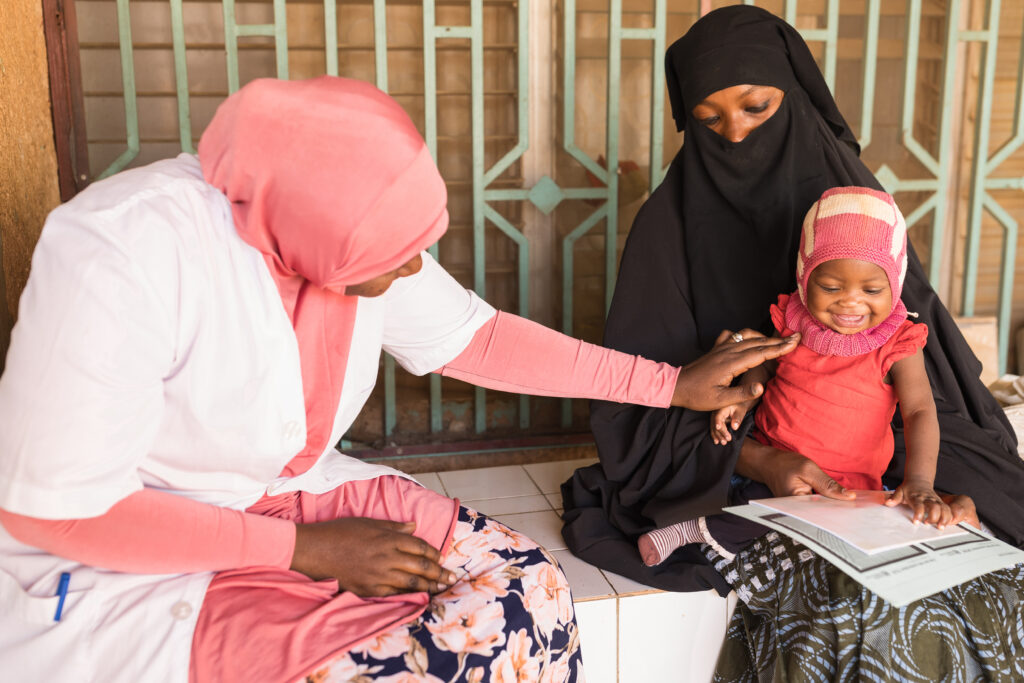Today, nearly 50 million children suffer from wasting, a severe form of malnutrition where a child is too thin for his or her age and is therefore at an increased risk of death and disease. Despite the staggering prevalence of wasting, less than one in four severely wasted children are receiving treatment.
Many wasting treatment programs operate in short-term stand-alone systems, completely separate from existing health systems. As a result, treatment is often fragmented and inefficient. In response, ECF and Children’s Investment Fund Foundation funded Results for Development (R4D) and UNICEF partnered to develop a recently released toolkit for national governments and ministries of health to integrate wasting treatment into national and local health systems. With the toolkit, national leaders can move away from parallel programming and better streamline existing health services.

A Resource Guide to Support National Planning
R4D and UNICEF developed this resource over two years and in consultation with nutrition and health experts at the global, regional, and country levels. Government representatives from Ethiopia, Kenya, Malawi, Pakistan, and the Philippines, local and regional NGO representatives, and donors participated as well. The guidance of these experts — many of whom were critical in integrating other vital services into primary health systems over the past 20 years — enabled the toolkit to address an inclusive range of needs and contexts.
With this resource, governments will have the support to continue strengthening health systems and improve child health outcomes. In line with these efforts, the Foreign Ministry of Health of Ethiopia is applying the approach to enact a national wasting integration plan with support from R4D and UNICEF, building on Ethiopia’s Global Action Plan for Child Wasting Road Map.
This multi-stakeholder plan will enable the Ethiopian government to make sustainable impacts in reducing child wasting . The process and experience in Ethiopia will also provide valuable lessons learned to further strengthen the framework and tools available in the global resource guide.
Background on Child Wasting: A Forgotten Public Health Emergency
The current system to address child wasting is broken — but it is not beyond repair. Given the global health crisis, the need for reform is more urgent than ever, with millions of children’s lives at stake.
Currently, many wasting treatment programs operate in separate, parallel tracks from routine health services. This inefficiency limits the ability of governments to scale wasting treatment over time. Embedding vertical services into broader national child health programs or systems:
- increases responsibility on the part of national governments;
- reduces reliance on external support; and
- supports sustainable scale up.
This toolkit is one step forward in making sure that local and national governments are able to seamlessly integrate wasting treatment into health systems and maintain sustainable programming.
Learn more about ECF’s commitment to the Global Action Plan country roadmap development and read this piece from R4D on six ways governments can integrate nutrition services into primary care.





